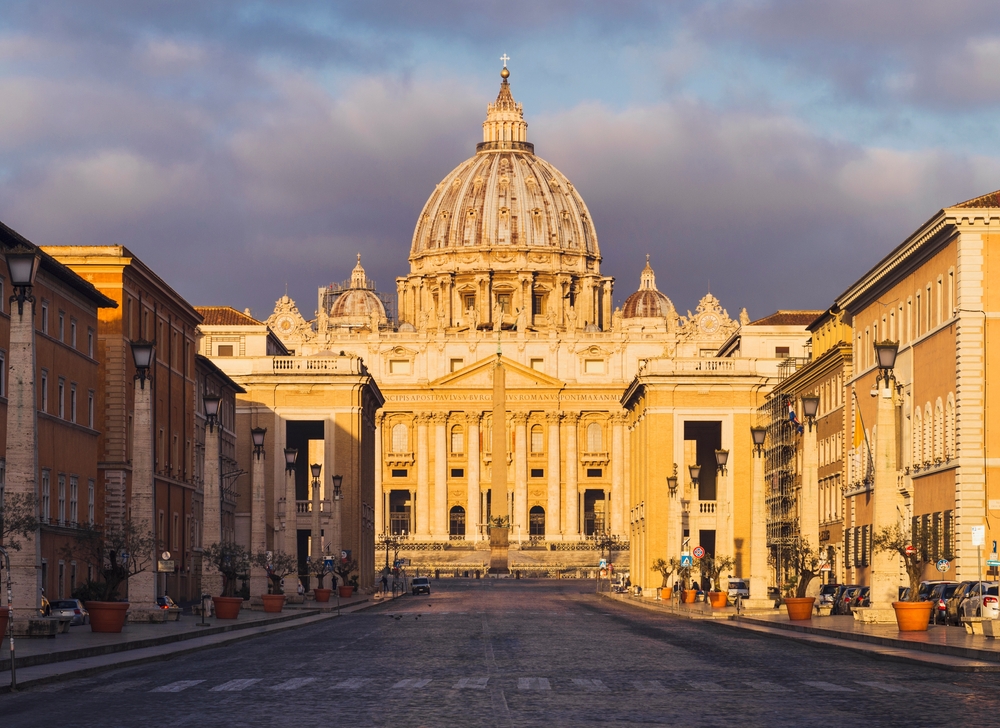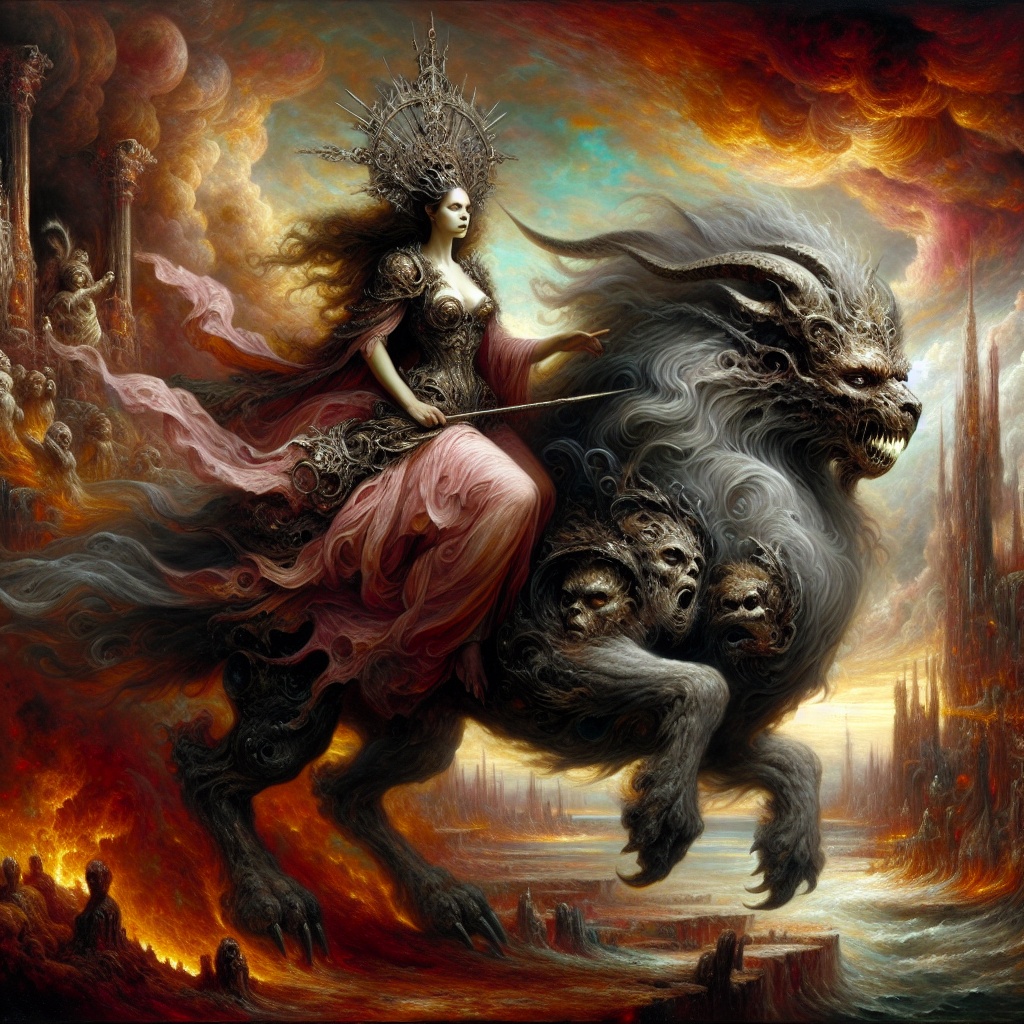
I have not had a guest blog post in a while. My friend Francis Sephton sent this to me and it is well worth a read. Here is a short bio:
Francis Sephton, oblate of Douai Abbey, Berkshire, England; Volunteer of the Focolare Movement.
Lancashire Catholic and 'diocesan' of Liverpool Archdiocese in north west England.
Married to Jacqueline and thus 'Malaysian' by marriage.
Retired land administrator in municipal government, currently part-time examination invigilator ('proctor') and pastoral worker."
Lay theologian by training and instinct.
A Palaeoradical Proposal
We can get into a bit of a tangle when we confuse political terms like
'conservative' and 'progressive' with theological positions. It is perfectly possible to be on the 'Left' politically and a theological conservative, and vice versa. So I am quite worried when those who are faithful to the Magisterium and the "gathered wisdom" of Tradition; to the "gentle personalism of apostolic
Catholicism, to update Peter Maurin's phrase, automatically assume that they
must be political conservatives and on the 'Right' of the ideological
spectrum.
I would argue that from the point of view of Catholic social teaching there is a problem with the term 'conservatism' as a political concept. Should an American
Catholic have been 'conservative' in respect of the Jim Crow laws? Should an Australian Catholic have favoured the institutional discrimination against the
Aboriginal people that existed until at least 1967? British Catholics would surely have had a problem with the Protestant Ascendancy in Ireland. And then what about chattel slavery?
G K Chesterton, for whom my respect grows daily, was quite traditional and deeply patriotic in an eirenic way. But he was very critical of the existing social order and could write of "the Crimes of England" especially in relation to Ireland and the wider British Empire.
It is true that he promoted a prudential attitude towards change asserting that we should not shut a gate until we knew why it was open. But can we term his position 'conservatism', even one that is "lower case"?
I also think it is problematic to use 'conservative ' in theological discussions. In part this is because it does carry political baggage but also because it is too restrictive a term to describe a Catholicism that is faithful to the Magisterium.
So I don't think 'conservative' as a description label will do for a Catholic, for someone aspiring to follow the gathered wisdom of the Church.
As an alternative I propose 'palæoradicalism'; a philosophy that advocates constantly
returning to the foundations in both Church and society. I define palæoradicalism as a theological and political perspective that seeks to draw inspiration from ancient or traditional principles to promote prudential renewal and to challenge both Society and the Church. . The term combines "palæo-" (Greek for "ancient" or "old") with "radicalism", implying a movement or ideology focused on returning to the roots, to foundational values, as a way to critique or transcend modern systems.
So the palæoradicalism I am advocating has two wings, one political and the other religious.
Christarchy: the politics of palæoradicalism.
To be a political 'conservative' seems to go beyond the
Chestertonian prudential attitude to change. It seems to be an attitude of what is is good. And this cannot be the right approach for a Catholic. We live in a fallen world. As Chesterton said original sin is the one doctrine that can be historical proved. This means that there is a constant tendency to sin, not just for individuals but, because of their actions, in the structures of society. So Palæoradicalism does require an awareness of the need for renewal and reform, albeit in a careful manner. Of course, there are better and worse social orders. It is preferable to live in a polity where the rule of law prevails, where the public administration is efficient and honest, where, as a general rule, everyone has enough to eat and where access to health care is widely available. Where these conditions exist they are certainly worth 'conserving'. But we need to constantly be on guard that 'conservation' doesn't become complacency.
In a Catholic context palæoradicalism is an aspect of Intergralism.
In the succinct definition of Pater Edmund Walstein :
"Catholic Integralism is a tradition of thought that, rejecting the liberal
separation of politics from concern with the end of human life, holds
that political rule must order man to his final goal. Since, however, man has both a temporal and an eternal end, integralism holds that there are two powers that rule him: a temporal power and a spiritual power. And since
man’s temporal end is subordinated to his eternal end, the temporal power must be subordinated to the spiritual power".
I accept this as a working definition. However, Integralism has often taken on forms which I find disturbing. It has effected an alliance with the strong, unitary state. Too often it has been seduced by the nation-state into becoming the servant of the total state. I term this process 'Down-Integralism' the attempt to enforce the Social Kingship of Christ by state coercion. In its worst form it is Christofascism, a truly blasphemous system.
So, I would qualify my understanding by the term 'Up-Integralism'. This has several characteristics which differ from those of Classical Integralism. Up-Integralism, or 'Anabatism' (derived from the Greek word "anabatós," which means "moving upward.") is 'Christiarchist', society must be organised from the bottom up, ordered upwards to the "Social Kingship of the Servant Christ". In part I see this a 'baptising' and rectification of what is valid in left-libertarianism. I think it is what Dorothy Day was searching for she said she was an 'anarchist'. I do not think an orthodox Catholic can reject the political order absolutely.
Christiarchy is the Social Kingship of Christ the Servant understood as organising society from unicarnate families upwards or anabatically to the Divine common good.
Some of these words will need explaining.
Even the phrase "Social Kingship of Christ" will be unfamiliar. It means that Christ has authority in all aspects of life and the political and social order should be organised accordingly.
The Church, the spousal Body of Christ, is one entity, one City of God. I take as a fundamental 'political ' statement Mt 28:1 "And Jesus came and said to them, 'All authority in heaven and on earth has been given to me.'"
In my view Christendom is formed by the Church but there is no 'State'. Rather within the Church there are spiritual and temporal 'swords'.
Where the Magisterium refers, in English translations, to 'State' I take it to mean the political organisation of society understood as a union of families. The Latin words 'respublica' and 'civitas' , used in Magisterial documents, I translate as 'commonwealth' and " civic community" respectively. The temporal commonwealth is my preferred phrase.
As Jesus had commanded the Apostles to make disciples of all nations, I take it they had supreme authority in all matters. But in Acts 6:2 we read: "And the twelve called together the whole community of the disciples and said, 'It is not right that we should neglect the word of God in order to wait on tables.'"
I read this, perhaps I 'gloss' this, as passing temporal authority to the
laity. Admittedly this is usually taken to be the foundation of the diaconate but I think we can see it as the creation of a wider 'temporal' arm of the Church. But as a personalist philosophy, as "baptised anarchy" , Anabatism affirms a structure of servant-leadership in both the spiritual and temporal dimensions of the Church.
I see the essential unity of the City of God coming together in the sacrament of marriage. In that sacrament the primary natural human community is elevated by grace into the sacramental order so the "subordination of the temporal to the spiritual" is effected in marriage.
Unicarnality emphasizes the sacramental nature of familial relationships, viewing marriage and family as foundational for societal well-being. This concept implies that Christ's presence is manifest in the unity and love shared within families.
By organizing society from unicarnate families upwards, this approach advocates for grassroots governance that fosters community engagement and supports the
development of ethical and moral values. I see the sacramental perfection of a natural community in Christian marriage as the place where the question of
the "Church and State " can be addressed, admittedly by transforming the 'State' as a distinct entity out of existence. In some sense I see my idea of
unicarnality as being the political development of the Theology of the Body.
So the fundamental institution of the temporal commonwealth should be a man and woman sacramentally united with their literal one-flesh union externally realised in children.
However, because such a family is not a "complete society", is not capable of providing for all its needs and continuity, if only biologically, unicarnate families must unite to form a larger community, a polity. To be a true perfection of the family this would not be very large, typically between fifty thousand and one hundred thousand people. Any larger and it would cease to be a real community of families. Above
this polity, or convivium, would be a somewhat flexible system of ascending bodies. Typically, several hundred convivia would form a 'kinland' , a distinct
human culture existing in a harmonious relationship with a particular geographical area. In keeping with the Magisterial teaching of the last two
centuries I envisage a global coordinating body operating on subsidiarial principles, a "planetary commonwealth of families".
The economic order would be influenced by solidarity economics in the light of Catholic Social Teaching. There would be widespread ownership of productive
property, cooperatives, credit unions and mutuals to provide health and social care and provide education.
This unicarnate political order also has the potential to resolve the age-old issue of Church-State relations. The sacramental family is the point where the temporal and the spiritual unite. As the fundamental political unit and as the domestic Church, the union of man and woman in sacramental matrimony is
also the marriage of the two orders of society. The Magisterium acts on the political order through the family.
By basing itself on the lowest but most important unit of human society Anabatism seeks to order the polity in a polycentric constitution structured in
an ascending system of nested communities.
The above may seem utopian and in many ways it is. In the current world
order, and perhaps in any foreseeable one, this system would be impossible to implement. It is really an ideal, a vision of how things could be. But we can take inspiration from it and perhaps implement part of it.
Here is a "modest proposal": Unicarnate families, husbands and
wives with their children living according to Word of God especially as expressed in the Theology of the Body, could form their own
convivia, real towns with a full range of all that makes a town work;
economic, cultural and political. Ideally these convivia would be
centred on monastic or neo-monastic communities. We might call these convivia 'Marinopoles', taking their inspiration from the
Mariapoleis of the Focolare Movement and also from Madonna
House. However, I also see them as being a development of the farms of
the Catholic Worker Movement.
Is this not just the Benedict Option? I don't think so. My understanding of the Option is that it wants to withdraw from the world . My proposal, let's call it "applied Christiarchy", is to form intentional communities that would engage with the rest of the world in a prophetic way. I truly see them as "building a new society in the
shell of the old".
But immediately what is to be done? How do we deal with the
agonistic nationalism that is so prominent now? I propose "eirenic
patriotism", a deep love of home place that relates to neighbouring
communities with a real sense of mutual respect and affirmation. It
would be premised on solidarity not isolationism
Apostolic Catholicism, a Palaeoradical Religion
Now I want to turn to palæoradicalism in religion. The first thing to say is that palæoradicalism is decidedly not liberal Catholicism. Liberalism in religion is problematic for several reasons. It is too uncritical of the world and is often more willing to throw out dogma than confront the zeitgeist.
So, how can palæoradicalism be expressed in religious terms? If not liberal Catholicism, why not traditionalism or religious conservatism? I offer 'apostolic Catholicism', as the religious expression of palæoradicalism. It implies fidelity to "the gathered wisdom of the Church "; the didache or apostolic teaching in its fulness including the Scriptures, Tradition, and Magisterium, together with 'koinonia' in all its richness and a spirituality rooted in the Eucharist and regular prayer. It implies continuity through time and unity in space; the Apostolic Succession in its most comprehensive sense. Apostolic Catholicism is traditionalist in the sense that the 'didache' is handed down, and it is conservative in that it preserves and defends that didache. It is rather sceptical of any suggestion of change, though open to authentic development and clarification. Apostolic Catholicism, however, is much more than either traditional or conservative Catholicism. It is palæoradical, always returning to the ancient roots of the faith. I would add that I see Apostolic Catholicism as a form of Communio-Ressourcement theology. The concept of "Apostolic Catholicism" is one that can serve as a bridge between different 'schools' within the modern Church. The liberal school, consciously or not, tends towards a "hermeneutic of rupture." It has a generally sceptical view of the Church as it existed before 1965, sometimes expressed by the term "spirit of the Second Vatican Council." This effectively denies the continuity between the pre- and post-Second Vatican Council Church. Ironically, it is a position held by the "Ultra-Trads" as much as by liberal Catholics. For a palaeoradical Catholic, the authentic view is that of Pope Benedict's "hermeneutic of continuity"; whatever changes or developments happened at or after the Council were in keeping with an authentic development of doctrine. Really, to deny that is to deny the truth of Catholicism. So Apostolic Catholicism would affirm this hermeneutic of continuity, but the term itself is not one that would raise the hackles of liberal Catholics. It leaves the door open to dialogue.
So, the phrase "Apostolic Catholic", certainly as I have defined it, is at once rooted in a "master narrative", the claim that Jesus is the only Saviour and that the Catholic faith .is a 'narrative' that can explain and contain all other stories, yet it remains innocuous enough to allow dialogue with those within the Church who adopt a more 'open' stance to the spirit of the times.
Apostolic Catholicism also has a 'High' view of the Faith. It seeks to "supernaturalise nature," whereas a 'Low' view, which I see as part of religious liberalism, aims to naturalise the supernatural.
So a further aspect of my objection to liberal Catholicism is that it does not give proper docility to the didache understood as a "master narrative." That docility actually provides strength for being 'non-conforming' to the zeitgeist, refusing to lapse into Gentilism. 'Gentilism' is the spirit of the 'nations' living apart from God. Authentic apostolic non-conformity is opposition to Gentilism and docility to the will of God.
Being a "beloved disciple"; Discipled Catholicity
"The Lord has given me a disciple's tongue; the tongue
of one who listens" Is 50:4.
A particular and personal appropriation of Apostolic Catholicism can be termed “Discipled Catholicity” (DC).
Being a DC is a response to the Universal Call to Holiness, the teaching of the Catholic Church that all people are called to be holy, based on Matthew 5:48: "Be you therefore perfect, as also your heavenly Father is perfect."
DC refers to a lived expression of the Catholic faith that emphasizes a personal commitment to following Christ while remaining deeply rooted in the teachings and traditions of the Church.
Devotion to the teaching of the Apostles is central to this approach. The 'didache', as I interpret it, is the total wisdom derived from Revelation; it is the promise contained in the Old Testament and the fulfilment brought by the New. It has a special focus on the Gospels, especially St John's Gospel. It is also the apostolic teaching lived and discerned through the centuries under the guidance of the Holy Spirit. The lived didache is, in part, an expression of the Magisterium. For me, the didache is shorthand for the Scriptures, Tradition, and the... Magisterium. It also includes the Church Fathers and the later Doctors of the Church. Devotion to the apostolic teaching means docility to the complete Word of God and to the work of the Holy Spirit.
Koinonia
This leads neatly into Koinonia, being in communion with the People of the Lord. Koinonia means unity with those in the Church, eirenicism with those outside, and mercy to all those in need; unity internally and solidarity externally. So Koinonia means being faithful to the Catholicity of the Church, accepting and rejoicing in its cultural variety within the unity secured by obedience to the Petrine Ministry. It means a burning desire for unity (Jn 17:21), for unity within the Church, with the separated brethren, with the elder brethren in the Classical and Messianic Jewish community, with the "other brethren" who seek the Divine through types and shadows, and with all people of good will. But that desire for unity is not for unity at all costs. Being faithful to the didache implies an invitation to everyone to convert to the didache, the only true way to unity and to faith in Jesus, the only name by which we can be saved (Acts 4:12).
The desire for unity within the Church reflects both legitimate cultural diversity and acceptable diversity of theological opinion. It also implies a charitable approach to those within the Church who hold positions seen as inauthentic. Koinonia has a practical side, as spelled out in Acts 2:44-45: "holding all in common (ἅπαντα κοινά) and dividing them as anyone had need." The apostolic teaching is common ownership with personal responsibility. This has deep implications for our practical life, particularly in how we administer the goods entrusted to us. Real poverty in any Christian society is a scandal, and the fact that it has existed in Christendom raises many questions.
Another vital part of koinonia is servant-leadership. There will be leadership positions in any community, but for a Christian community, a 'κοινωνία', they will always be ones of servant-leadership. Tragically, throughout the history of the Church, this fundamental reality has often, perhaps usually, been lost sight of. Far too often, the leaders of the Church, both ordained and lay, have acted as Gentiles and lorded over the anawim. One of the practical aspects of "Christiarchy" is that Christian leaders, whether of the spiritual or temporal order, should be servants rather than lords (Mk 10:43). Perhaps the greatest title of the Pope is "servant of the servants of God."
The Breaking of the Bread
This relates to the Eucharist which is at the very heart of Discipled Catholicism. The following quote from J.R.R. Tolkien seems to sum up the Discipled Catholic's understanding of the Blessed Sacrament as “the one great thing to love on earth”:
“Out of the darkness of my life, so much frustrated, I put before you the one great thing to love on earth: the Blessed Sacrament.” —Letter to Michael Tolkien, 1941
And "I fell in love with the Blessed Sacrament from the beginning—and by the mercy of God never have fallen out again.”
Certainly, that phrase "so much frustrated...the one great thing to love on earth: the Blessed Sacrament” encapsulates a cruciform understanding of the Eucharist in the Mass and in the abiding presence of the Lord in our churches.
Contemplative prayer, in its fullest sense, is about developing that spiritual inner eye that enables one to see God as the Creator of everything at every instant. The first act of prayer is adoration; the active recognition that God is the Good and source of all being. A very Benedictine practice is the regular saying of the introductory prayer to the Hours of the Office: "O God, come to my aid; O Lord, make haste to help me," combined with the Jesus Prayer: "Lord Jesus Christ, Son of God, have mercy upon me, a sinner." Saying these prayers frequently, perhaps hourly, is a good way of "praying constantly."
Conclusion: A Palaeoradical Proposal
I hope that this palæoradical vision will help faithful Catholics navigate the current maelstrom. It is a political philosophy rooted in an authentic development of Catholic social teaching termed Christiarchy: the Social Kingship of Christ the Servant, a political order where authority flows upward from unicarnate families to the Universal Common Good, who is God. And a theological attitude and practice termed Apostolic Catholicism, faithful to the tradition of the Apostolic teaching, to the Eucharist, and to the service of those in need.








